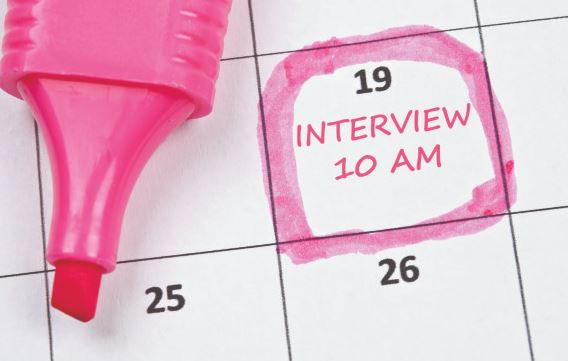The call or email comes in – the company you were hoping would contact you wants you to come in for an interview. The recruiter or hiring manager asks, “When could you come in to see us?”
While you may think to immediately turn to your calendar to throw out a few dates and times that work, remember your interview is a chance to a give a presentation that influences and persuades an employer as to why you’re right for the job. Recently, writer Kate Parham, after reviewing an Accountemps 2008 survey and Andrew Bradbury’s book, Successful Presentation Skills, determined that the best time to give a presentation is Tuesday morning around 10:30 a.m. Considering that the “best” presentation times and interview times are likely similar, then Tuesday morning could be a great time to set up your interview.
But how do you know what date and time is the best to interview? While a time that works for you may sound like the “best” option, the “best” time is really the time that is best for the interviewer. So before you quickly respond, consider these tips before locking down a date and time for your next big interview:
1. Avoid early morning meetings
Early mornings are great for holding someone’s attention, but you may want to avoid the first meeting of the morning because the interviewer may be preoccupied since she/he still has home stuff and all the things that need to happen throughout the day on their mind. In that vein, first thing Monday morning would not be ideal.
2. Avoid the last meeting of the workday
The same can be said for the last meeting of the day as by then there are surely many things on the mind including priorities for the next work day, dinner plans, kids’ homework, etc. And, don’t even think about the end of the day on a Friday.
3. Avoid pre or post-lunch meetings
Just before lunch or the first time slot after lunch are also problematic. Before lunch can leave you with a good interview being cut short and after lunch can find you waiting and waiting.
4. Weekend and Holiday bookends are not ideal
First day back after a three-day weekend or the Friday before will only get you running behind or rescheduled. The same can be cautioned about Mondays and Fridays. They both have their problems and you don’t want to be the victim if you can help it.
5. Get the inside scoop on days/times that work well
Unless you have an inside connection at the company like the hiring manager’s assistant, there isn’t any way to know what meetings the interviewer is coming out of or going into. However it doesn’t hurt to lightly ask the assistant, “How is the day going?” or “How does the rest of the day look?” Any clues you can pick up about the mood, the schedule, or the pressures on the interviewer are to your advantage.
You certainly can’t always pick your time, but you can definitely take just a few moments to find out when may be more ideal so that you can best present yourself.
Click here for the original article.





